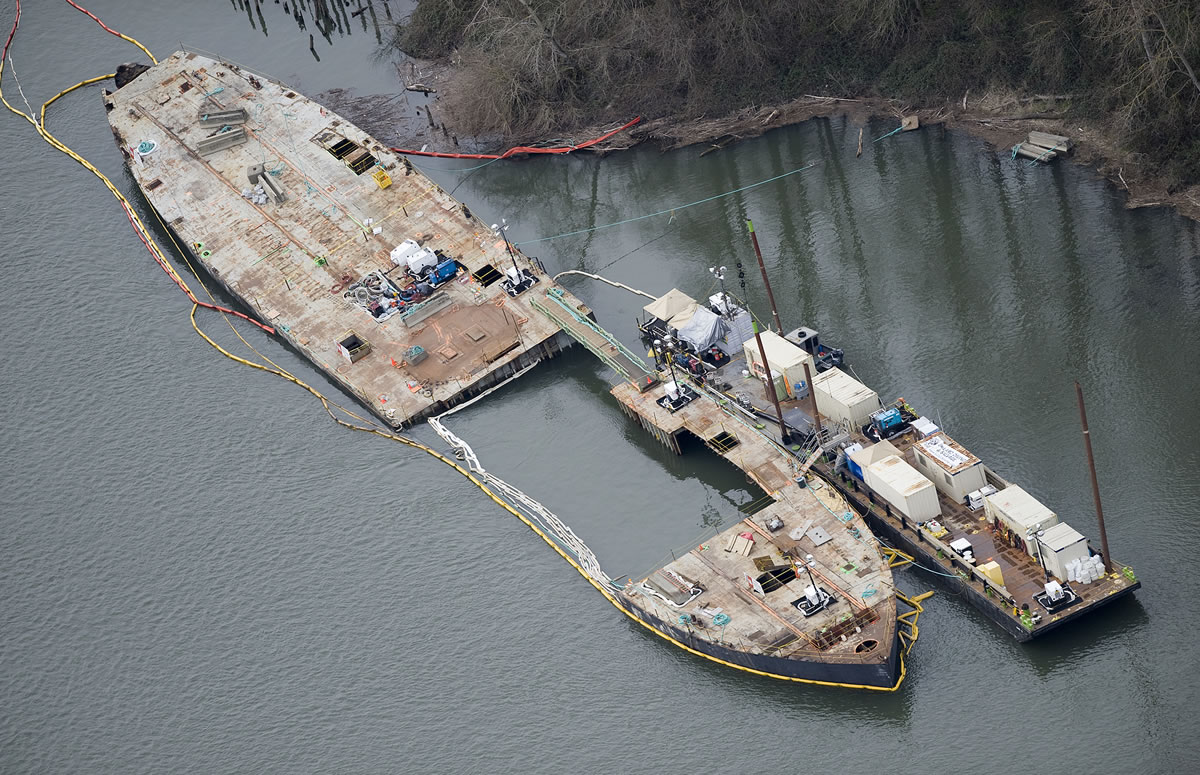The state Department of Ecology has begun developing a new permit that would establish a set of rules for the deconstruction of derelict vessels over water.
Currently, there’s no permitted way to do that. Any approved dismantling of an abandoned or defunct ship must happen at a dry-dock facility.
But Ecology officials hope establishing the permit will open a new door for the safe removal of some of the 153 derelict vessels now languishing on Washington waterways.
“There are a lot of risks involved in deconstructing a vessel, so some shipyards are reluctant to take on that work,” said Vince McGowan, a water quality specialist with the ecology department. “We don’t want to get into a situation where the boats sink just because there aren’t good options for deconstructing them.”
He added: “We’re trying to prevent these vessels from sinking.”
The effort comes on the heels of the high-profile Davy Crockett debacle, when a botched salvage operation on the 430-foot barge leaked oil into the Columbia River near Camas in 2011. The mess led to a massive cleanup that ultimately spanned 10 months and cost more than $22 million.
Bret Simpson, the barge’s last owner, had attempted the illegal dismantling and later pleaded guilty to two criminal violations of the Clean Water Act. He was sentenced to four months in prison and hit with large fines and other penalties.
McGowan said the Davy Crockett saga has entered into conversations around a new deconstruction permit. But it’s difficult to say what would have become of the converted World War II Liberty Ship with such an avenue in place, he said.
“It may or may not have helped in that case,” McGowan said. “It may have given someone an option.”
The proposed deconstruction permit would define appropriate requirements to prevent the discharge of pollutants during the dismantling of a vessel over water, according to the ecology department. Any applicant would have to meet those requirements before getting approval.
The permit would only allow for the partial deconstruction of certain vessels. Deconstruction of the hull and remaining superstructure, for example, would occur at permitted facilities, according to the department.
The issue of derelict vessels has seen more statewide attention in recent years, partially due to the Davy Crockett. The incident spurred legislative attention in both Washington and Oregon, and started new conversations about gaps in authority, regulation and communication, said Melissa Ferris, manager of the state Department of Natural Resources’ Derelict Vessel Removal Program.
State and local agencies have removed 495 derelict vessels in the 10 years since the DNR program was established, Ferris said. Among the more than 150 now remaining, more than two dozen are on the Columbia River system alone, she said.
Those still in the water are only becoming more unstable. Many are re-purposed ships that date to World War II, Ferris said.
“It’s an aging fleet,” she said. “They become less of a commercially viable use, and more of a liability.”
The ecology department may develop a draft of the proposed permit by the end of this year, McGowan said. Officials will accept public comments during the review process. The permit could be implemented as soon as next spring, he said.
“We think it will help salvage companies and other folks understand what they’re getting into and be able to do the work — want to do the work,” McGowan said.
Eric Florip: 360-735-4541; http://twitter.com/col_enviro; eric.florip@columbian.com




